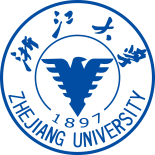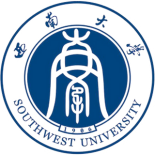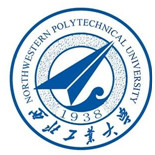 Keynote
Speakers of ICBBT 2025
Keynote
Speakers of ICBBT 2025

Prof. Ruhong Zhou
Zhejiang University
H-index: 89, Fellow of AAAS
Professor Ruhong Zhou, AAAS Fellow & APS Fellow, is currently National Distinguished Expert; expert member of Zhejiang Province's Kunpeng Plan; Qiushi Chair Professor; Dean, the School of Life Sciences at Zhejiang University; and expert member of the Ministry of Science and Technology's "Biomacromolecules and Microorganisms" expert group under the 14th Five-Year Plan. From 2000 to 2020, he worked at IBM Watson Research Center, serving as Research Scientist, Distinguished Research Scientist, Director of the Protein Science Laboratory, Chair of the Soft Matter Science Department, and Chief Life Scientist for IBM’s Blue Gene Project. Concurrently, he held adjunct positions as Assistant Professor (2002) and later Adjunct Professor in the Department of Chemistry at Columbia University. In 2020, he returned full-time to Zhejiang University, where he contributed to establishing the Zhejiang University Center for Quantitative Biology and the Shanghai Institute for Advanced Study, serving as the latter's founding Dean. His interdisciplinary research spans computational biology, biophysics, biochemistry, and AI+, achieving internationally recognized breakthroughs in protein design, nanomedicine development, and tumor immunology mechanisms. He holds over 30 international patents and has authored more than 300 peer-reviewed publications, including 2 in *Nature*, 2 in *Science*, 1 in *Cell*, 24 in Nature sister journals, and 17 in *PNAS*, with total citations exceeding 30,000 and an H-index of 89 (Google Scholar). His accolades include the Guohua Distinguished Scholar Award, American Chemical Society DEC Award on Computational Chemistry, IBM Outstanding Technical Achievement Award (the highest technical award within IBM; 10 times), the IBM Outstanding Innovation Award (twice), and 2009 National Medal on Technology (Presidential Medal) as a key contributor to IBM BlueGene team . He was elected to AAAS Fellow (American Association of Advancement of Science) and APS Fellow (American Physical Society) in 2011. he was recognized in 2012 as one of IBM’s "Five Scientists Most Likely to Create Transformative Impact Globally" among its eight research divisions.
Speech Title: "Intelligent Screening and Design of Neoantigens for Cancer Immunotherapy"
Abstrct: Cancer immunotherapy has been among the most promising breakthroughs in oncology, particularly in the case of immune check point inhibitors, however, the effective response rate remains quite low, only about 20-30%. In this presentation, I will talk about our recent work with a combined physics- and knowledge-based AI platform, PKNAP, along with novel algorithms FEPaML, MultiTAP, and NEOM for neoantigen predictions and maturation. We found that patients with certain HLA genotype (HLA-B44) have consistently higher survival rate, while patients with some other type (HLA-B15) have much poorer survival rates. Our PKNAP platform further reveals that HLA-B15 proteins with poorer therapeutic outcomes had structural appendages that closed over the cancer neoantigens with much less dynamical flexibility. HLA typing thus might serve as a useful biomarker in future immunotherapy, with additional functional modifications to both HLA-B44 and HLA-B15 specific antigens to further improve the efficacy. Two effective neoantigens Neil3 and Myole are further identified for bladder cancer. The same techniques are then extended to the design and development of T1D vaccines. A new x-autoantigen from a dual expressor (X-cell) has been identified for T1D patients, which shows a super potent binding affinity to HLA-DQ8, the main risk allele for T1D. Newly designed autoantigen mutants with specific local dynamics are shown to serve as potential HLA-DQ8 blockers or vaccine candidates.

Prof. Li Zhang
The Chinese University of Hong Kong (CUHK)
H-index: 85, Fellow of IEEEE, ASME, RSC, AAIA
Li Zhang is a Professor in the Department of Mechanical and Automation Engineering (MAE) and a Professor by Courtesy in the Department of Surgery at The Chinese University of Hong Kong (CUHK). He is also a project leader in the Multi-scale Medical Robotics Center (MRC), InnoHK, at the Hong Kong Science Park. Dr. Zhang’s main research interests include small-scale robotics and their applications for translational biomedicine. He has authored or co-authored over 300 publications (H-index: 84), including Science Robotics (3),Nature Machine Intelligence (3), Nature Materials, Nature Reviews Bioengineering,Nature Synthesis, Science Advances (11), Nature Communications (6), as the corresponding author. Dr. Zhang is elected as a Fellow of IEEE (FIEEE), American Society of Mechanical Engineers (FASME), Royal Society of Chemistry (FRSC), Asia-Pacific Artificial Intelligence Association (FAAIA), The Hong Kong Institution of Engineers (FHKIE), a member of the Hong Kong Young Academy of Sciences (YASHK), and an Outstanding Fellow of the Faculty of Engineering at CUHK.He is a visiting professor of Lee Kong Chian School of Medicine at NTU Singapore, and Senior Editor of IEEE T-ASE and IEEE T-RO.
Speech Title: "Micro-and Nanorobots for Biofilm Eradication"
Abstrct: Micro- and nanorobots present a promising approach for navigating within the body and eliminating biofilm infections. Their motion can be remotely controlled by external fields and tracked by clinical imaging. They can mechanically disrupt the biofilm matrix and kill the dormant bacterial cells synergistically, thereby improving the effectiveness of biofilm eradication.

Prof. Sun Kim
Seoul National University
Sun Kim is Professor in the School of Computer Science and Engineering, Adjunct Professor of Biological Sciences, and Director of Bioinformatics Institute (2011-2021) at Seoul National University. He is a member of National Academy of Engineering, Korea and head of a brain and computing infrastructure division of Korea National Artificial Intelligence Committee (2024-2026). Until recently, he was President of Mogam Institute of Biomedical Research (2022-2024). Before joining SNU, he was Chair of Faculty Division C; Director of Center for Bioinformatics Research, an Associate Professor in School of Informatics and Computing at Indiana University (IU) Bloomington. Prior to joining IU in 2001, he worked at DuPont Central Research from 1998 to 2001, and at the University of Illinois at Urbana-Champaign from 1997 to 1998. Sun Kim received B.S and M.S and Ph.D in Computer Science from Seoul National University, KAIST and the University of Iowa, respectively. Sun Kim is a recipient of Outstanding Junior Faculty Award at Indiana University 2004, US NSF CAREER Award in 2003, and Outstanding Faculty Award in research 2021 in the College of Engineering at Seoul National University. He is actively contributing to the bioinformatics community, having serving on the editorial board for journals including editors for the METHODS journal (2013-2022) and, associate editor-in-chief for ACM/IEEE Transactions on Computational Biology and Bioinformatics (2019-2021), and also on the board of directors for ACM SIG Bioinformatics and for education for the IEEE Computer Society Technical Committee on Bioinformatics. Among many service activities in Korea, he served on Samsung Future Technology Committee (2016-2018), a member of The National Science and Technology Council of the Korean Government (2019-2020), President of Korea Artificial Intelligence Society (2016-2018) and Vice President of Korea Society of Bioinformatics and Systems Biology (2011-present).
Speech Title: "Navigating Chemical, Genetic, and Disease Space with Deep Learning Technologies"
Abstrct: Deep learning technologies generate vectorized representations of raw data, which can be interpreted as an implementation of new functions and distributions for data. This offers unprecedented opportunities to make prediction for unseen data and also to integrate multi-modal data of heterogenous types. Numerous pre-training models are available, ranging from chemical compound data, molecular data to medical records. In this talk, I will start with basic concept of deep learning technologies and then survey pre-trained models for multi-omics data, genome mutations, gene transcripts, histone codes, DNA methylations, proteins, cells, and disease phenotypes. Now these pretrained models are beginning to be deployed at the health system scale. Because pre-trained models transform your data in the context of big data, you can easily use them for your own research goals, which will explained by sharing our experience of utilizing pre-trained models. I will also discuss the utility of two important resources, large language models (LLMs) like GPT and knowledge graphs for the integrated analysis for drug discovery at the full scale. The conclusion of this talk will be two strategies of utilizing pre-trained models and knowledge graphs from my personal experience.
Previous Keynote Speakers
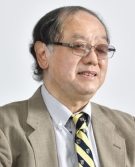
Prof. Tatsuya Akutsu
Kyoto University
Tatsuya Akutsu received B.Eng. and M.Eng. in Aeronautics and D.Eng. in Information Engineering from University of Tokyo, in 1984, 1986 and 1989, respectively. From 1989 to 1994, he was with Mechanical Engineering Laboratory. From 1994 to 1996, he was an Associate Professor in the Department of Computer Science at Gunma University. From 1996 to 2001, he was an Associate Professor in Human Genome Center, Institute of Medical Science, University of Tokyo. Since 2001, he has been a Professor in Bioinformatics Center, Institute for Chemical Research, Kyoto University. He is a fellow of Information Processing Society of Japan (IPSJ), and was an editor-in-chief of IPSJ Transactions on Bioinformatics for 2006-2009. His research interests include bioinformatics, complex networks, and dicrete algorithms.
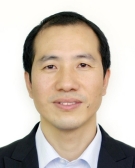
Prof. Ming Chen
Zhejiang University
Prof. Ming Chen received his PhD in Bioinformatics from Bielefeld University, Germany. He is a professor and PhD supervisor at the college of Life Sciences in Zhejiang University, and is the leading figure in the field of Bioinformatics at Zhejiang University. He has a long career in scientific research and education of bioinformatics and systems biology. He has published over 200 SCI academic papers in journals such as Cell, Nature, Nucleic Acids Research, and Bioinformatics, and his google scholar H-index is over 51. Prof. Ming Chen is the President of the Bioinformatics Society of Zhejiang Province, China; Committee Director of Chinese Society for "Multi-Omics and Integrative Biology", Committee Deputy Director of Chinese Society for "Modeling and Simulation of Biological Systems"; Committee executive member of Chinese Societies for "Computational Systems Biology" and "Functional Genomics & Systems Biology"; and Committee member of Chinese Societies for "Biomedical Information Technology" and "Biophysics (Bioinformatics) ".

Prof. Bairong Shen
West China Hospital, Sichuan University
Bairong Shen, Professor of the Institute of System Genetics at West China Hospital, Sichuan University. Currently also holds positions as Professor at the Institute for Systems Biology in Seattle and the University of the Basque Country in Spain. Serves as the leader of the virtual teaching and research group for the "101 Plan" of the Ministry of Education in the field of medical data collection and analysis. Since returning to China in 2008, has led over 10 projects funded by the National Natural Science Foundation and other institutions, and has supervised the training of over 90 graduate students. Has published over 200 papers in various international journals across disciplines such as Intensive Care Medicine, International Journal of Surgery, Bioinformatics, International Journal of Medical Informatics, Genome Biology, and Nucleic Acids Research. Has edited 10 books in both Chinese and English related to the field of translational informatics. His research interests include the theoretical aspects of biomarker discovery, biomedical data sharing and security, and intelligent management of chronic diseases.

Prof. Tianzi Jiang (MAE, IEEE Fellow, IAPR Fellow, AIMBE Fellow)
The Chinese Academy of Sciences
Tianzi Jiang, Professor and Director of the Brainnetome Center at the Institute of Automation, Chinese Academy of Sciences. He obtained PhD degree at Zhejiang University and BSc degree at Lanzhou University. His research interests include neuroimaging, Brainnetome, imaging genetics, and their clinical applications in brain disorders. He is the author or co-author of over 300 reviewed journal papers, with a total citation of over 36000 from Google Scholar and H-index of 89. He was elected a member of the Academy of Europe, a fellow of IEEE, IAPR and AIMBE. He is the recipient of Hermann von Helmholtz Award, Turan Itil Career Contribution Award, Wu Wen-Jun AI Distinguishing Contribution Award, and Natural Science Award of China.

Prof. Wing-Kin Sung
Chinese University of Hong Kong and Hong Kong Genome Institute
Professor Wing-Kin Sung is a Global Stem Professor in the Department of Chemical Pathology, the Chinese University of Hong Kong. He is the director of the Laboratory of Computational Genomics. He is also the Chief Bioinformatics officer (Honorary) in the Hong Kong Genome Institute. His recent research focuses on identifying genomic mutations from high-throughput sequencing data and on understanding the relationship between mutations (in particular, structural variations) and diseases. Prof. Sung received both the B.Sc. and the Ph.D. degree in the Department of Computer Science from the University of Hong Kong in 1993, 1998, respectively. He has over 25 years of experience in Algorithm and Bioinformatics research. Prior to joining CUHK, Professor Sung was a Professor in the Department of Computer Science at the National University of Singapore (NUS) and was a senior group leader at the Genome Institute of Singapore. He is an expert in the field of bioinformatics, who has been leading the development of a number of bioinformatics software and has over 290 high impact papers published in renowned academic journals, including Bioinformatics, Cell, Nature, Nature Genetics and Nucleic Acids Research. In recognition of his research contributions, Professor Sung was conferred the FIT Paper Award (Japan) in 2003, the National Science Award (Singapore) in 2006, and the Young Researcher Award (NUS) in 2008. He has also served in the programming committee for over 70 international conferences.
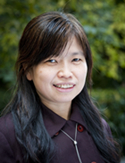
Prof. Phoebe Chen
La Trobe University
Professor Phoebe Chen is Professor and Chair at the Department of Computer Science and Information Technology, La Trobe University, Melbourne Australia. She was Head of Department of Department of Computer Science and Computer Engineering, La Trobe Uni. Prof Phoebe Chen is a member of the College of Experts of the Australian Research Council. Phoebe received her BInfTech and PhD from the University of Queensland. Prof Chen has been the Chief Investigator of ARC Centre of Excellence in Bioinformatics. Phoebe has been awarded 30 research grants. Professor Chen has been doing multi-discipline research for more than 20 years and has been associate editors of IEEE Transactions on Neural Networks and Learning Systems, IEEE Transactions on Multimedia etc. She has published over 265 research papers, many of them appeared in top journals and conferences such as Artificial Intelligence, Nature Machine Intelligence, Bioinformatics, IEEE Transactions on Neural Networks and Learning Systems, IEEE Transactions on Biomedical Engineering, Molecular Systems Biology, Nucleic Acids Research etc. She is ACM SIGMM Vice-Chair, steering committee chairs of Asia-Pacific Bioinformatics Conference (founder) and International conference on Multimedia Modelling. She has been on the program committees of over 100 international conferences, including top ranking conferences such as ICDE, ICPR, ISMB, CIKM etc.

Prof. Hongbing Lu
Fourth Military Medical University
Hongbing Lu, Ph.D., professor and director, Faculty of Biomedical Engineering, Fourth Military Medical University. Her research interests cover a spectrum from medical image reconstruction to image analysis for computer-aided detection and diagnosis, including brain network analysis for mental disorder. As the principal investigator of near twenty projects including key projects funded by the National Science Foundation of China, by Ministry of Science and Technology, and by the Military Research Foundation, she has published over 170 research papers including leading journals like Biomaterial, IEEE Trans Med Imag, Euro Radiol, and IEEE Trans Biomed Eng (with single highest citation over 420), holds more than ten US and Chinese licensed patents, and awarded by many prizes including the First Prize of State Science and Technology Award. She is currently the committee chair of the Shaanxi Society of Biomedical Engineering, and has served as an associate editor of IEEE Transactions on Medical Imaging and Medical & Biological Engineering & Computing.

Prof. Tuan D. Pham
Prince Mohammad Bin Fahd University, Saudi Arabia
Tuan D. Pham currently holds positions as Professor in AI and Founding Director of the Center for Artificial Intelligence at Prince Mohammad Bin Fahd University, Saudi Arabia. The Center for Artificial Intelligence is equipped with state-of-the-art computing facilities and infrastructure. His previous position was Professor of Biomedical Engineering at Linkoping University, University Hospital Campus, Linkoping, Sweden. He was appointed as Professor and Leader of the Aizu Research Cluster for Medical Engineering and Informatics, and the Medical Image Processing Lab, both at the University of Aizu, Japan. Before his appointments in Japan, he was appointed as Associate Professor and the Bioinformatics Research Group Leader at the University of New South Wales, Canberra, Australia. His current research focuses on AI and machine learning methods for image processing, time-series analysis, complex networks, and pattern recognition applied to medicine, biology, and mental health. He serves as an Associate/Section Editor for several scholarly journals, series, and conference proceedings. In 2020, Dr. Pham is selected as an Expert in Artificial Intelligence by the U.S. Food and Drug Administration (FDA) Center for Devices and Radiological Health (CDRH) Network of Digital Health Experts Program (NoDEx).
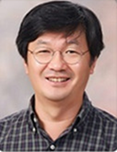
Prof. Taesung Park
Seoul National University, South Korea
Prof. Taesung Park received his B.S. and M.S. degrees in Statistics from Seoul National University (SNU), Korea in 1984 and 1986, respectively and received his Ph.D. degree in Biostatistics from the University of Michigan in 1990. From Aug. 1991 to Aug. 1992, he worked as a visiting scientist at the NIH, USA. From Sep. 2002 to Aug. 2003, he was a visiting professor at the University of Pittsburgh. From Sep. 2009 to Aug. 2010, he was a visiting professor in Department of Biostatistics at the University of Washington. From Sep. 1999 to Sep. 2001, he worked as an associate professor in Department of Statistics at SNU. Since Oct. 2001 he worked as a professor and currently the Director of the Bioinformatics and Biostatistics Lab. at SNU. He served as the chair of the bioinformatics Program from Apr. 2005 to Mar. 2008, and the chair of Department of Statistics of SNU from Sep. 2007 and Aug. 2009. He has served editorial board members and associate editors for the international journals including Genetic Epidemiology, Computational Statistics and Data Analysis, Biometrical Journal, and International journal of Data Mining and Bioinformatics. His research areas include microarray data analysis, GWAS, gene-gene interaction analysis, and statistical genetics.

Prof. Fabio Roli, IEEE&IAPR Fellow
University of Cagliari, Italy
Fabio Roli is a Full Professor of Computer Science at the University of Cagliari, Italy, and Director of the Pattern Recognition and Applications laboratory (https://pralab.diee.unica.it/). He is partner and R&D manager of the company Pluribus One that he co-founded (https://www.pluribus-one.it ). He has been doing research on the design of pattern recognition and machine learning systems for thirty years. His current h-index is 71 according to Google Scholar (April 2021). He has been appointed Fellow of the IEEE and Fellow of the International Association for Pattern Recognition. He was a member of NATO advisory panel for Information and Communications Security, NATO Science for Peace and Security (2008 – 2011). Prof. Roli is the recipient of the 2020 Pattern Recognition Medal of the international scientific journal Pattern Recognition, and the 2020 IAPR Pierre Devijver Award, granted to an outstanding scientist who has significantly contributed to the field of statistical pattern recognition.
 Important Dates
Important Dates10 Feb., 2026
15 Mar., 2026
31 Mar., 2026
 Sponsored by
Sponsored by
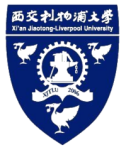
 Patrons
Patrons 